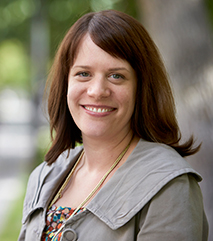
Professor Stacey Tovino

Professor Sara Gordon
The Mitchell Hamline School of Law Health Law
Institute is pleased to welcome Professor Sara
Gordon and Professor Stacey Tovino from the
University of Nevada, Las Vegas William S. Boyd
School of Law. Mitchell Hamline School of Law
Professor Eric Janus will also offer his perspective
on mental health law issues. This event has been
approved for 1.5 standard CLE credits (code: 234305)
“The Use and Abuse of Mutual Support Programs” featuring Professor Sara Gordon:
POWERPOINT
There is a large gap between what we know about the disease of addiction and its appropriate treatment, and the treatment received by individuals who are ordered into treatment as a condition of participation in drug court. Most medical professionals are not appropriately trained about addiction and most addiction treatment providers do not have the education and training necessary to provide appropriate evidence-based services to individuals who are referred by drug courts for addiction treatment. This disconnect between our understanding of addiction and available addiction treatment has wide-reaching impact for individuals who attempt to receive medical care for addiction in this country as well as for those individuals who are compelled by a drug court to receive that treatment. Instead of receiving evidence-based treatment, most drug court participants are referred to mutual support groups and programs based largely or entirely on 12-step principles. Mutual support groups, while well-intentioned and helpful as a supplement to evidence-based addiction treatment, are not a substitute for scientifically valid addiction treatment and should not constitute the primary form of medical assistance received by drug court participants.
In this talk, Professor Gordon will argue that drug and other specialty courts can be part of the transformation of the public perception of addiction as well as the integration of addiction treatment into mainstream medicine by incorporating and endorsing evidence-based strategies for the treatment of addiction, including psychosocial and pharmacological treatments. Moreover, by adopting these treatments more readily and providing more opportunities for drug court participants to receive evidence-based treatment, drug courts can dramatically improve treatment outcomes for participants.
“Mental Health Parity under a Trump Administration” featuring Professor Stacey Tovino:
POWERPOINT
This talk will provide an update on federal and state mental health parity law and mandatory mental health and substance use disorder benefit law. In particular, attendees will learn about the protections and limitations of three pieces of federal legislation, including the Mental Health Parity Act, signed into law by President Bill Clinton in 1996; the Paul Wellstone and Pete Domenici Mental Health Parity and Addiction Equity Act, signed into law by President George W. Bush in 2008; and the Affordable Care Act, signed into law by President Barack Obama in 2010. Implementing federal regulations, illustrative state benchmark plan coverage statements, and state mental health parity and mandatory mental health and substance use disorder benefit laws will be described as well. Attendees will be given examples of public and private mental health coverage provisions that comply with and violate each law. Attendees also will learn how any repeal or replacement of the Affordable Care Act by President Donald Trump will affect mental health parity and mandatory mental health and substance use disorder benefits going forward.
- Friday, February 24, 2017
- 7:30am Breakfast; 8-9:30am Presentation
- Kelley Boardroom, Mitchell Hamline School of Law
- Remote participation via live webcast is available
- Free for law students to attend
